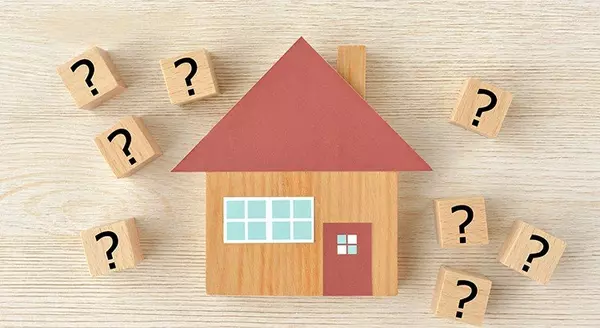Colorado Springs Area Home Sales November 2021

In November the Colorado Springs Area housing sales saw a slight decrease from October sales, which is typical of the Fall real estate market. 1199 single family homes were sold in El Paso county in November compared to 1342 in October of this year. Novemvber home sales prices for the Colorado Spr
Read More#FactFriday - Where does “Black Friday” come from?

Now that we’re done with Thanksgiving, let the Christmas season begin! Here we are already in 2021 at the busiest shopping day of the year “Black Friday”. Full of miraculous deals, fresh new items for the season, and you and your fellow man elbow to elbow basking in retail delight. But how did
Read More-

AnneMichelle Johnson has just celebrated her one year anniversary with EXIT Realty Mountain View, way to go AnneMichelle! Before coming to EXIT Realty Mountain View, Anne-Michelle spent a decade as a real estate agent in Maryland where she lived for over 20 years. We are happy to have AnneMichelle’
Read More -

2 days to go until Thanksgiving! The turkey is the center piece of Thaksgiving and more often than not it's the part of the meal that can go very wrong. EXIT Realty Mountain View wants to share some Tukey Tips to help make the center piece of your Thanksgiving meal a success. Colorado Spring
Read More A Look into the Colorado Springs Rental Market

As crazy as home sales have been in the Colorado Springs Area in 2021 the rental market has been, as the kids say it, “extra”. The area rental market this year has been, to say the least, very competitive, and like any industry when demand is high prices increase. Here is a breakdown of the 2021
Read MoreRetirement May Be Changing What You Need in a Home

The past year and a half brought about significant life changes for many of us. For some, it meant entering retirement earlier than expected. Recent data shows more people retired this year than anticipated. According to the Schwartz Center for Economic Policy Analysis, 2021 saw a retirement boom:“A
Read More-

Romelda Williams joined EXIT Realty Mountain View this last July and brings her positive energy and relentless drive to the EXIT Realty Mountain View brokerage. “My mission is to uplift and inspire others to be the best version of themselves. I am committed to learning the newest and latest
Read More Sellers: You’ll Likely Get Multiple Strong Offers This Season

Are you thinking about selling your house right now, but you’re not sure you’ll have the time to do so as the holidays draw near? If so, consider this: even as the holiday season approaches, there are plenty of buyers out there, and they really want your house. Here’s why selling this winter is a wi
Read More4 Things Every Renter Needs To Consider

As a renter, you’re constantly faced with the same dilemma: keep renting for another year or purchase a home? Your answer depends on your current situation and future plans, but there are a number of benefits to homeownership every renter needs to consider.Here are a few things you should think abou
Read MoreThe 3 Keys to Better Email Marketing [LIVE WEBINAR]
![The 3 Keys to Better Email Marketing [LIVE WEBINAR],KCM Crew](https://img.chime.me/image/fs/chimeblog/20211113/16/w600_original_1165d9f5-760c-450b-b2a5-79d031ed7724-jpg.webp)
The post The 3 Keys to Better Email Marketing [LIVE WEBINAR] appeared first on Keeping Current Matters.
Read MoreShould I Update My House Before I Sell It? [INFOGRAPHIC]
![Should I Update My House Before I Sell It? [INFOGRAPHIC],KCM Crew](https://img.chime.me/image/fs/chimeblog/20211112/16/w600_original_b90b4400-e7be-4a0e-b933-4687bba25a32-png.webp)
Some HighlightsIf you’re deciding whether you should make updates before you sell your house, lean on your agent to be your guide.If the market is flooded with houses for sale, updates may be necessary for your house to stand out. In our current sellers’ market, the added expenses might not be worth
Read MoreVA Loans: Helping Veterans Achieve Their Homeownership Dreams

The purpose of Veterans Affairs (VA) home loans is to provide a pathway to homeownership for those who have sacrificed so much by serving our nation. As the Veterans Administration says of the program:“The objective of the VA Home Loan Guaranty program is to help eligible Veterans, active-duty perso
Read MoreWhat’s Happening with Home Prices?

Many people have questions about home prices right now. How much have prices risen over the past 12 months? What’s happening with home values right now? What’s projected for next year? Here’s a look at the answers to all three of these questions.How much have home values appreciated over the last 12
Read MoreHow Sellers Win When Housing Inventory Is Low

In today’s housing market, the number of homes for sale is much lower than the strong buyer demand. As a result, homeowners ready to sell have a significant advantage. Here are three ways today’s low inventory will set you up for a win when you sell this season.1. Higher PricesWith so many more buye
Read MoreTwo Graphs That Show Why You Shouldn’t Be Upset About 3% Mortgage Rates

With the average 30-year fixed mortgage rate from Freddie Mac climbing above 3%, rising rates are one of the topics dominating the discussion in the housing market today. And since experts project rates will rise further in the coming months, that conversation isn’t going away any time soon.But as a
Read MoreNumbers Don’t Lie – It’s Still a Great Time To Sell [INFOGRAPHIC]
![Numbers Don’t Lie – It’s Still a Great Time To Sell [INFOGRAPHIC],KCM Crew](https://img.chime.me/image/fs/chimeblog/20211105/16/w600_original_bdba9759-417c-441e-801d-904e502afee0-png.webp)
Some HighlightsHeading into the end of the year, you might wonder if it’s still a good time to sell your house. Here’s what the latest data from the National Association of Realtors (NAR) says.Housing supply is lower than last year, and home prices are up nationwide. Meanwhile, the average home is s
Read MoreWhy a Wave of Foreclosures Is Not on the Way

With forbearance plans coming to an end, many are concerned the housing market will experience a wave of foreclosures similar to what happened after the housing bubble 15 years ago. Here are a few reasons why that won’t happen.There are fewer homeowners in trouble this timeAfter the last housing cra
Read MoreMeet Sweet Home 719 Team - Carolina and Robert Gobel

The Sweet Home 719 Team is EXIT Realty Mountain View’s first husband and wife real estate team, and the dynamic relationship of Carolina and Robert Gobel as a team has been such a contributing force to the whole of EXIT Realty Mountain View. Sweet Home 719 Team came to EXIT Realty Mountain View i
Read MoreExperts Project Mortgage Rates Will Continue To Rise in 2022

Mortgage rates are one of several factors that impact how much you can afford if you’re buying a home. When rates are low, they help you get more house for your money. Within the last year, mortgage rates have hit the lowest point ever recorded, and they’ve hovered in the historic-low territory. But
Read MoreSellers Have Incredible Leverage in Today’s Market

With mortgage rates climbing above 3% for the first time in months, serious buyers are more motivated than ever to find a home before the end of the year. Lawrence Yun, Chief Economist for the National Association of Realtors (NAR), puts it best, saying:“Housing demand remains strong as buyers likel
Read More
Categories
Recent Posts











